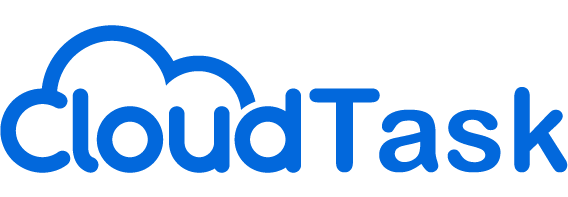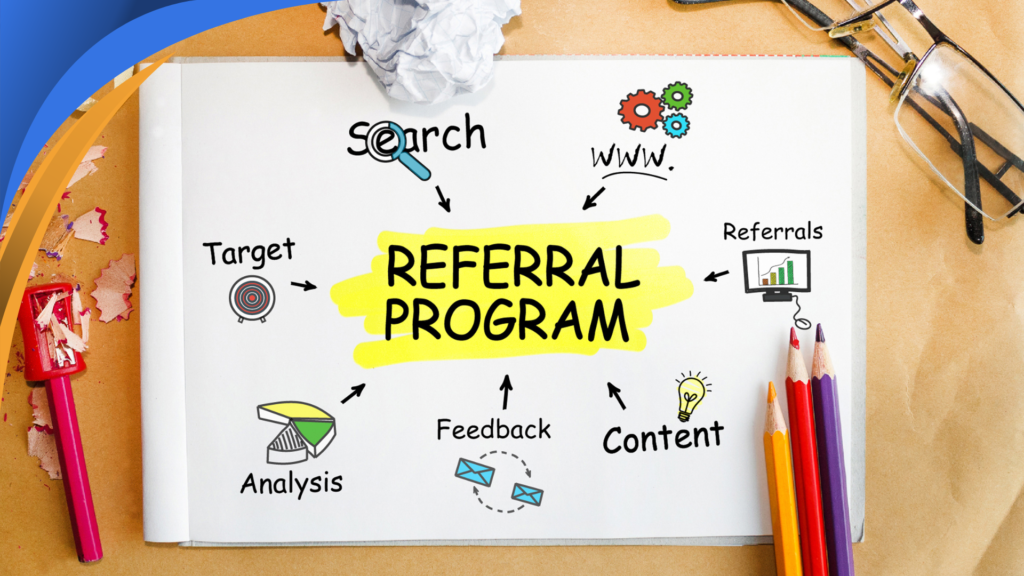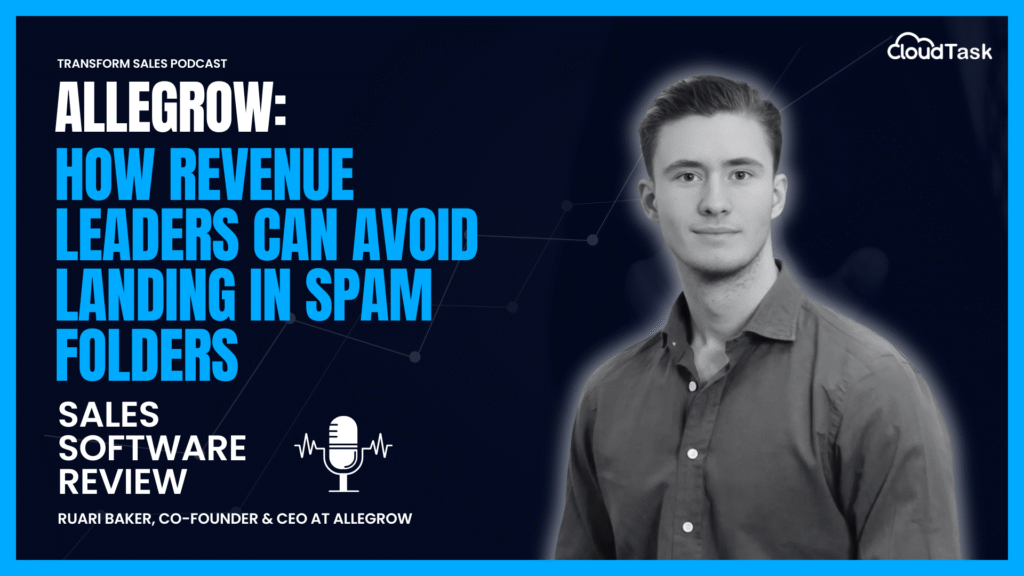Sales consultants and trainers face a constant challenge: generating high-quality leads that convert into loyal customers.
Traditional marketing methods often fall short, proving costly and time-consuming with underwhelming results. This struggle leaves many professionals feeling frustrated and questioning their approach to business growth.
However, there’s a powerful solution that many overlook: scaling referral programs.
When properly scaled, these programs can transform your business, providing a consistent flow of pre-qualified leads at a fraction of the cost of traditional marketing.
This article will explore the strategies for scaling referral programs specifically tailored for sales consultants and trainers. By the end, you’ll have a clear roadmap to leverage your existing network, boost conversions, and accelerate your business growth.
What Are Referral Programs?
These programs reward customers for bringing in new business, creating a win-win situation for both the company and its loyal customer base.
Referral programs come in various forms, each suited to different business models and goals:
- Direct referrals: Customers directly recommend your product or service to their friends, family, or colleagues. This method works well for B2C companies and service-based businesses.
- Indirect referrals: Customers share their positive experiences on social media or review sites without directly contacting potential new customers. This approach can be particularly effective for businesses with a strong online presence.
- Affiliate programs: Partners or influencers promote your product or service in exchange for a commission on each sale. This model is popular among eCommerce businesses and digital product creators.
Benefits of Scaling Referral Programs
Scaling referral programs can significantly amplify its benefits, turning a good strategy into a great one.
When you expand your referral program, you’re not just increasing numbers – you’re exponentially growing your potential for success.
Let’s delve into the key advantages of scaling referral programs and why it’s a game-changer for sales consultants and trainers:
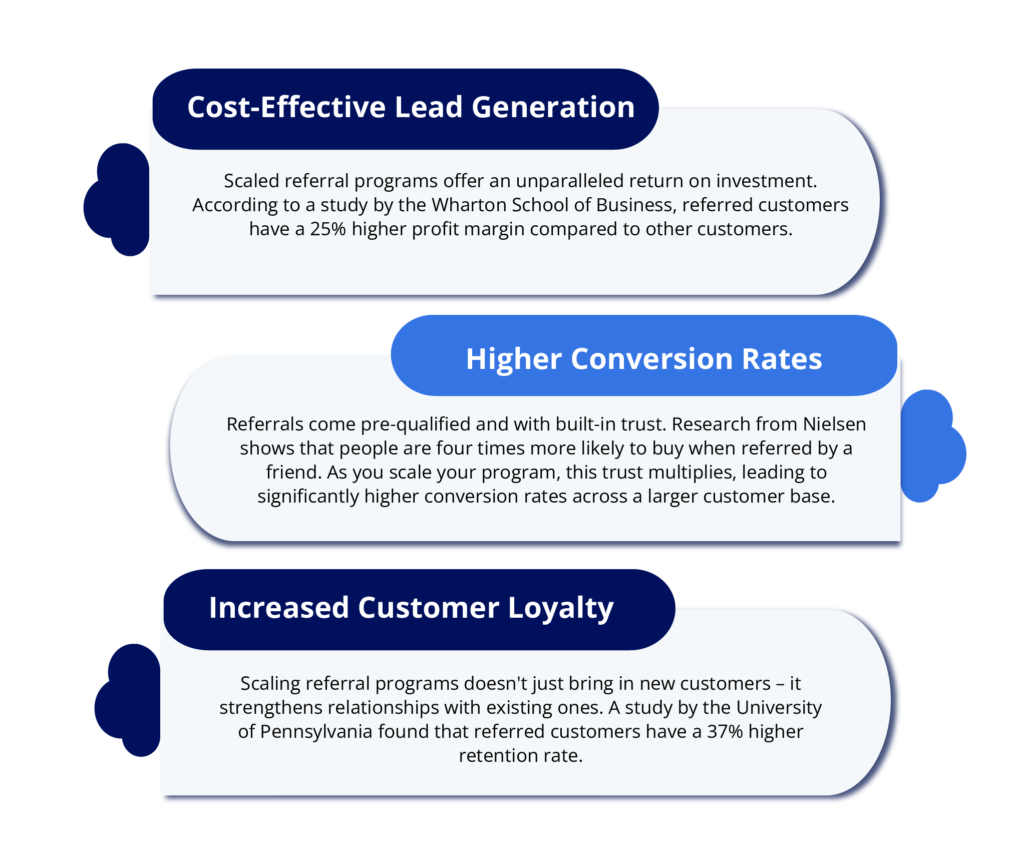
Strategies to Scale Your Referral Program
Scaling a referral program requires a strategic approach. It’s not just about doing more of the same – it’s about optimizing and expanding your efforts intelligently.
Here are key strategies to effectively scale your referral program:
- Leverage Existing Customers: Your current customers are your most valuable asset in scaling referrals. Develop a systematic approach to request referrals at key touchpoints in the customer journey. Remember, timing is crucial – ask for referrals when customer satisfaction is at its peak, such as after a successful project completion or positive feedback.
- Utilize Technology: Harness the power of referral software and platforms to automate and streamline your program. These tools can help track referrals, manage rewards, and provide valuable analytics. For instance, platforms like Partnerstack can significantly boost the efficiency of your referral program management.
- Incentivize Both Parties: Create a win-win situation by offering compelling rewards to both the referrer and the new customer. A study by the University of Chicago found that non-cash incentives can be 24% more effective at boosting performance than cash incentives, so think creatively about your rewards.
- Promote the Program: Don’t assume your customers know about your referral program. Actively promote it through various channels:
- Email campaigns highlighting the benefits of your referral program.
- Social media posts showcasing successful referrals and rewards.
- In-app notifications or website banners for easy access to referral information.
How to Train Your Sales Team for Referral Success
Your sales team plays a crucial role in the success of your referral program.
Properly trained sales professionals can significantly boost referral rates and ensure the program’s success as it scales.
Here’s how to equip your team for referral success:
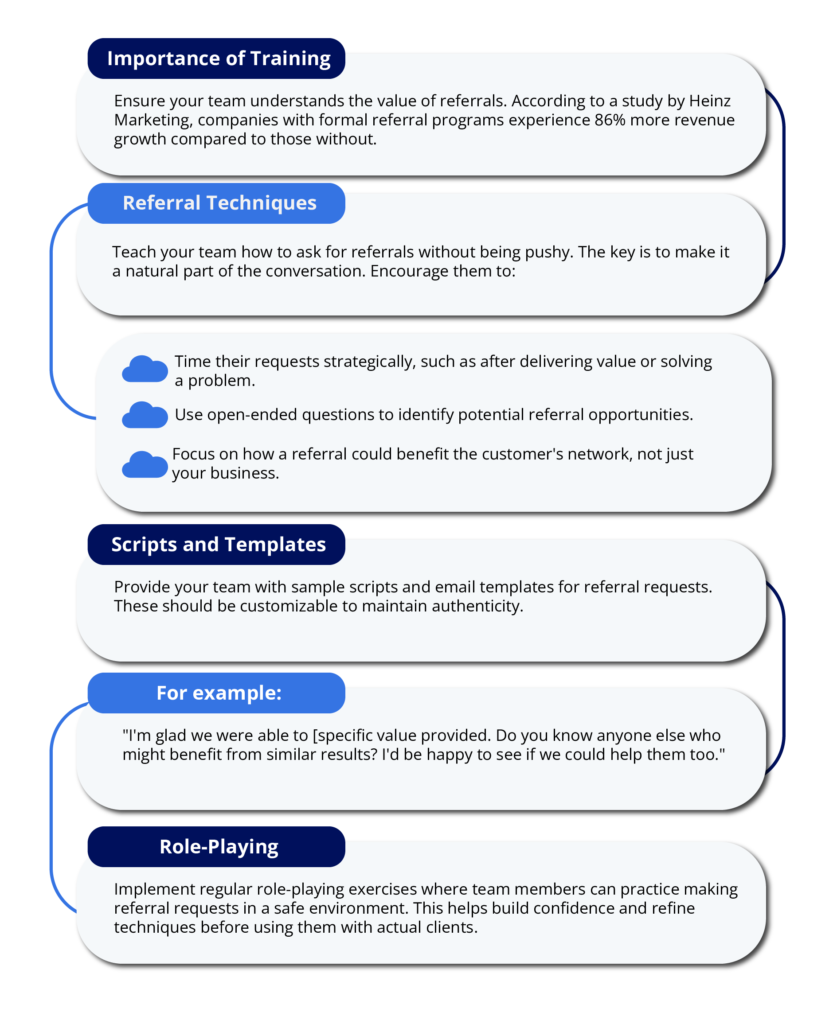
Final Thoughts
Scaling referral programs is a powerful strategy for sales consultants and trainers looking to drive business growth. We’ve explored leveraging satisfied customers, implementing the right technology, and training your team effectively.
The foundation of a successful program? Exceptional service and genuine relationships.
Start with small steps, monitor your metrics closely, and be prepared to adjust your approach as needed. Your satisfied customers are valuable assets, eager to recommend your services to their network.
If you’re ready to elevate your referral strategy, consider exploring the CloudTask Marketplace.
It’s home to a curated selection of sales agencies specializing in lead generation and referral programs. They can help you implement the strategies we’ve discussed and achieve your growth objectives.
Frequently Asked Questions (FAQs)
How long does it typically take to see results from a scaled referral program?
- Most businesses start seeing an uptick in referrals within 3-6 months of implementing a well-designed program. However, this can vary depending on your industry, customer base, and program structure. Consistency is key – maintain regular communication with your customers and continually refine your approach based on feedback and results.
Are there any industries or niches where referral programs strategies are less effective?
- While referral programs can benefit most industries, their effectiveness may vary in highly regulated sectors like healthcare or finance due to restrictions on incentives. In these cases, non-monetary rewards or reputation-based programs can still be effective. The key is to tailor your program to your specific industry constraints and customer preferences.
How can I measure the ROI of my referral program?
- To measure ROI, track metrics such as Customer Acquisition Cost (CAC) and Lifetime Value (LTV) for referred vs. non-referred customers, conversion rates of referral leads, and revenue generated from referral customers. Compare these metrics to your program costs, including incentives and management resources. Many referral software platforms offer built-in analytics to help you track these metrics effectively.
What should I do if my referral program isn’t generating the expected results?
- If your program isn’t meeting expectations, review your referral program incentives, assess your communication strategy, and analyze your customer experience. Gather feedback from participants and non-participants to identify potential barriers. Consider A/B testing different aspects of your program to find what resonates best with your audience.
